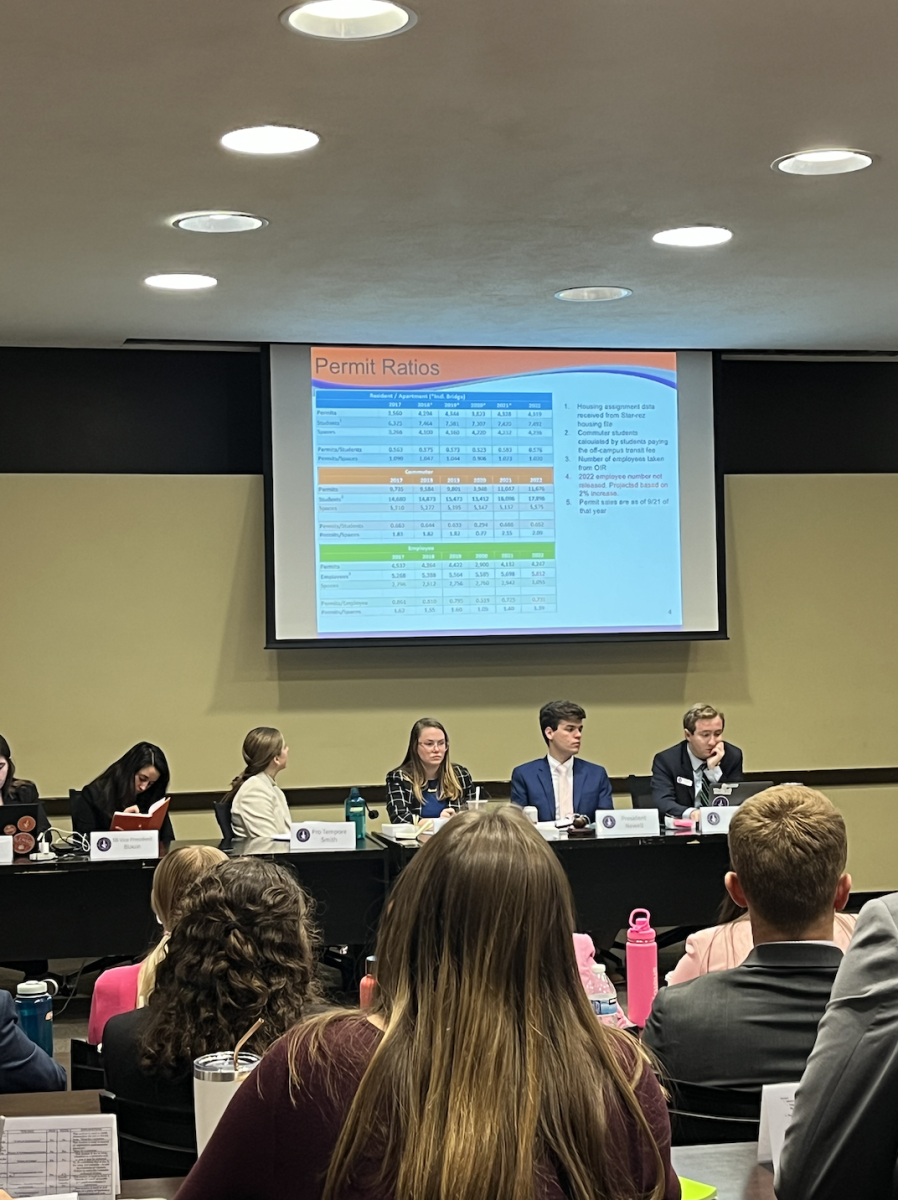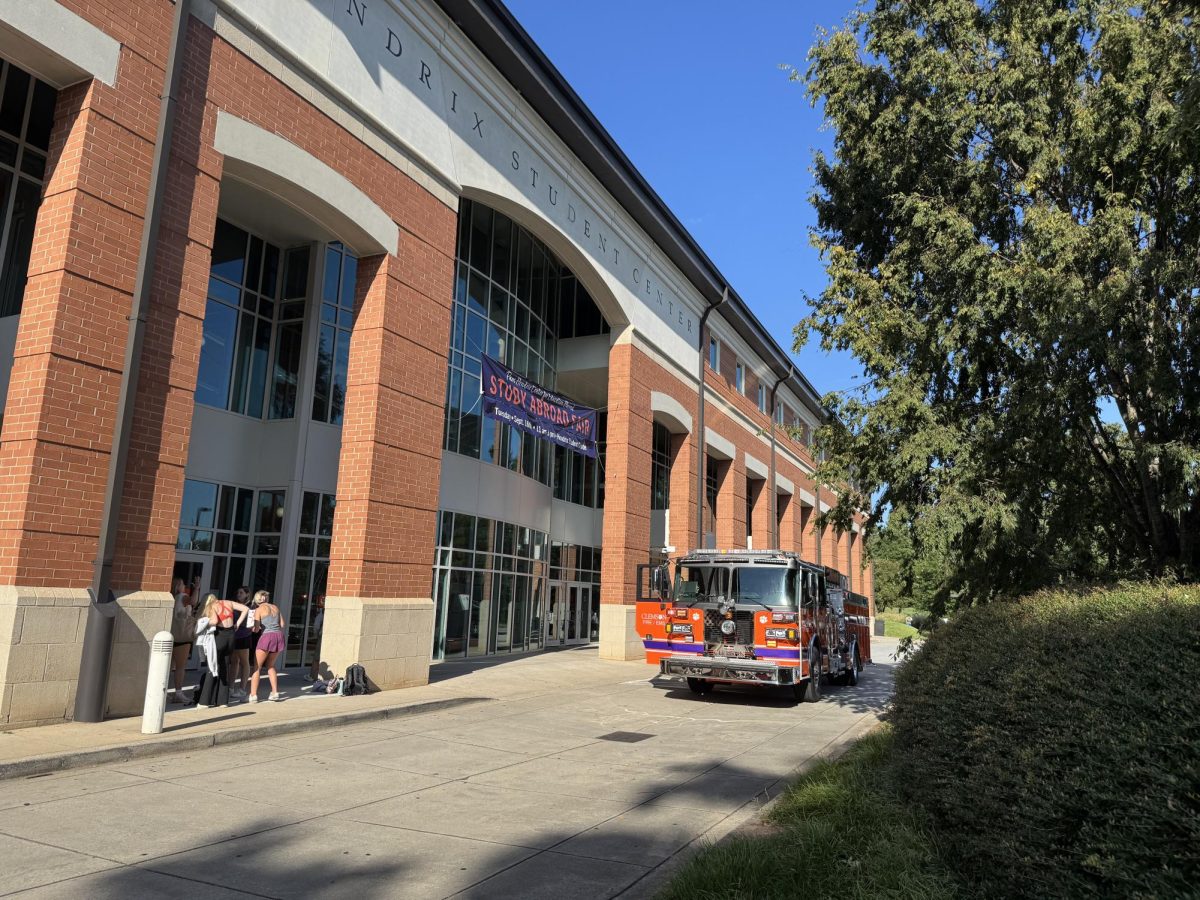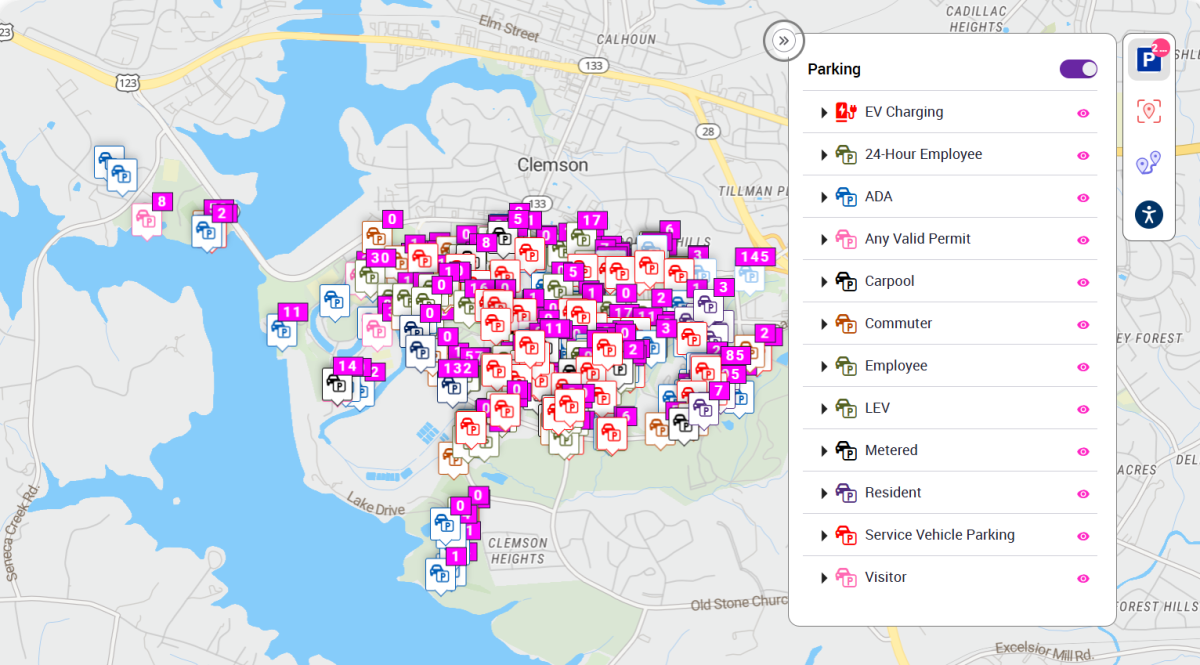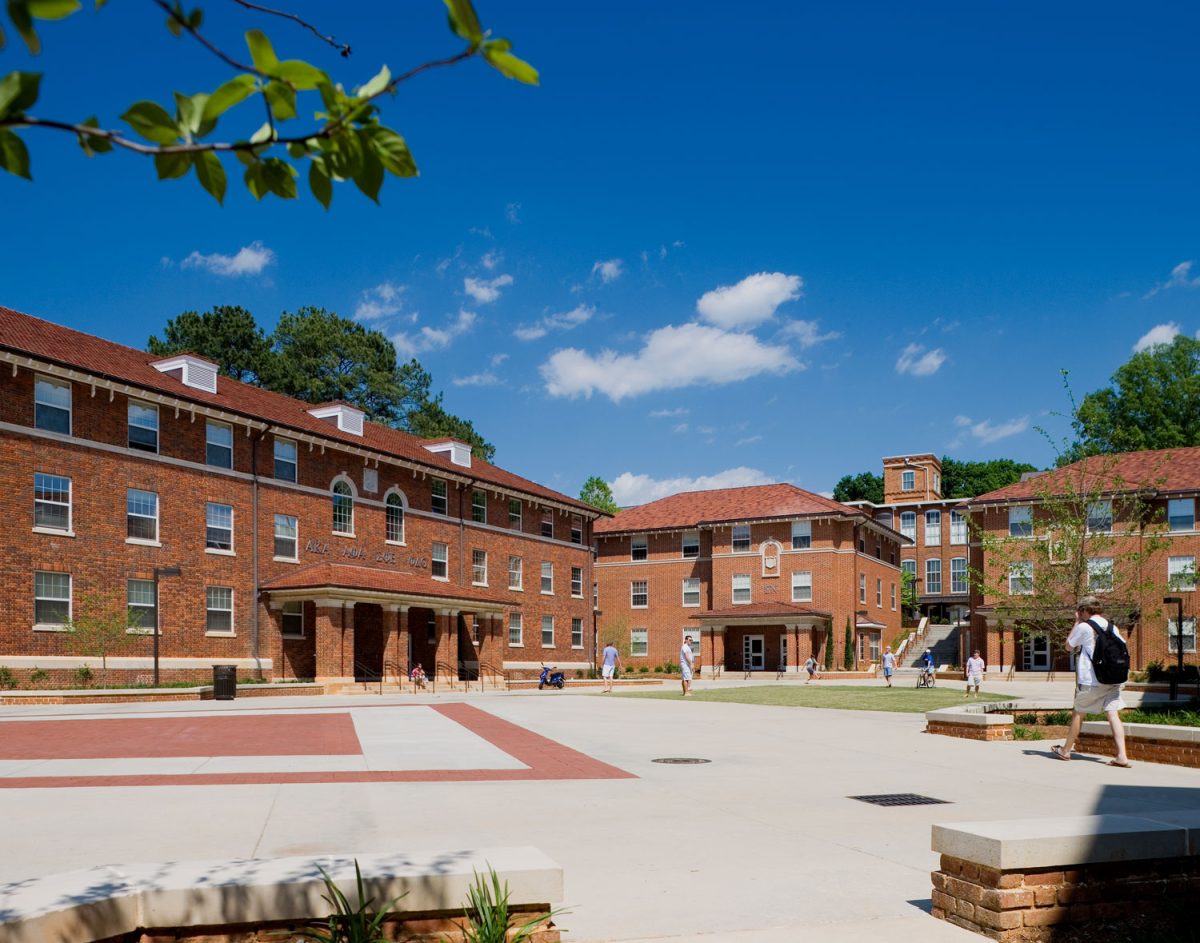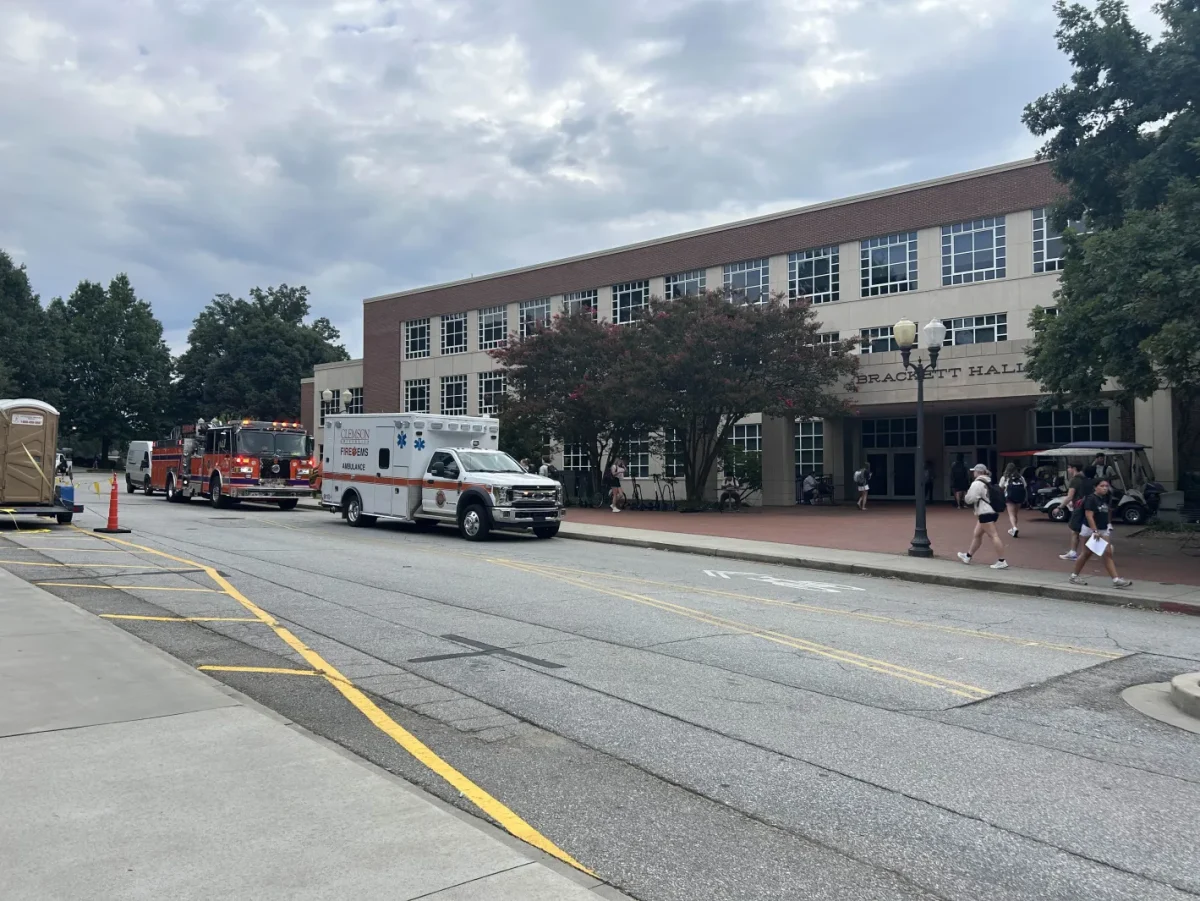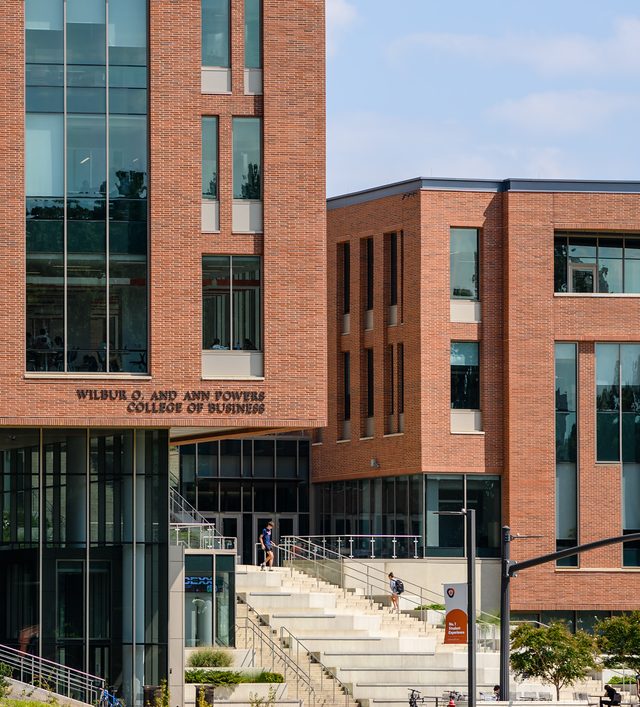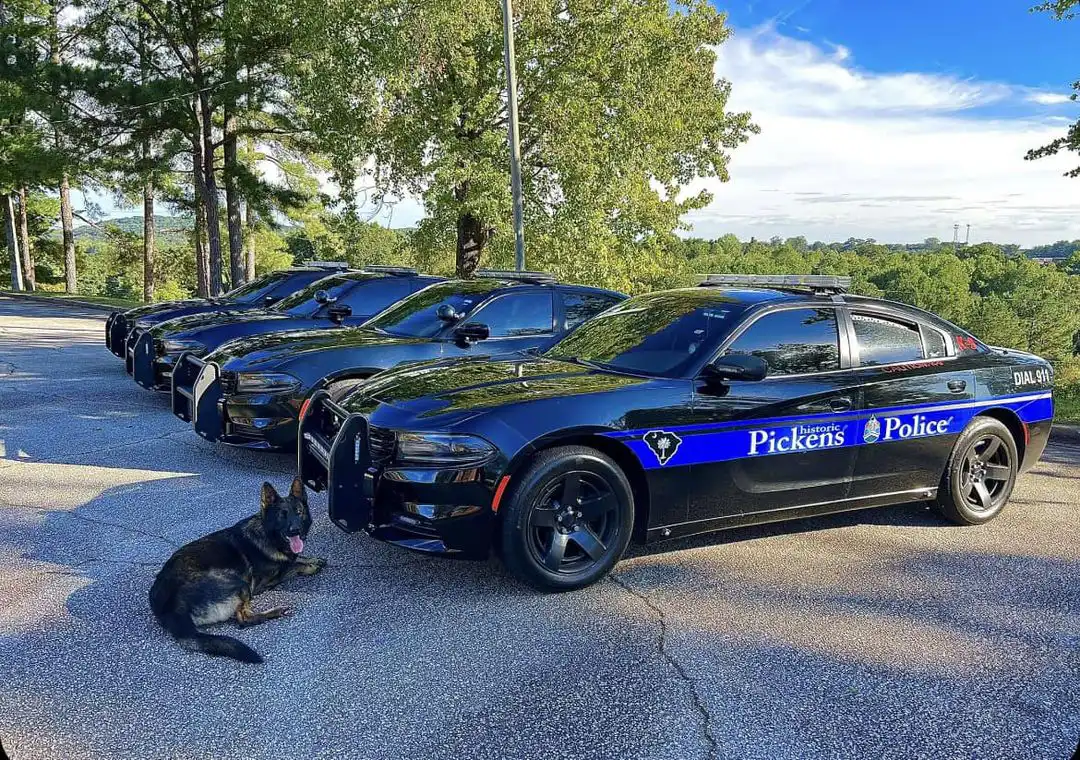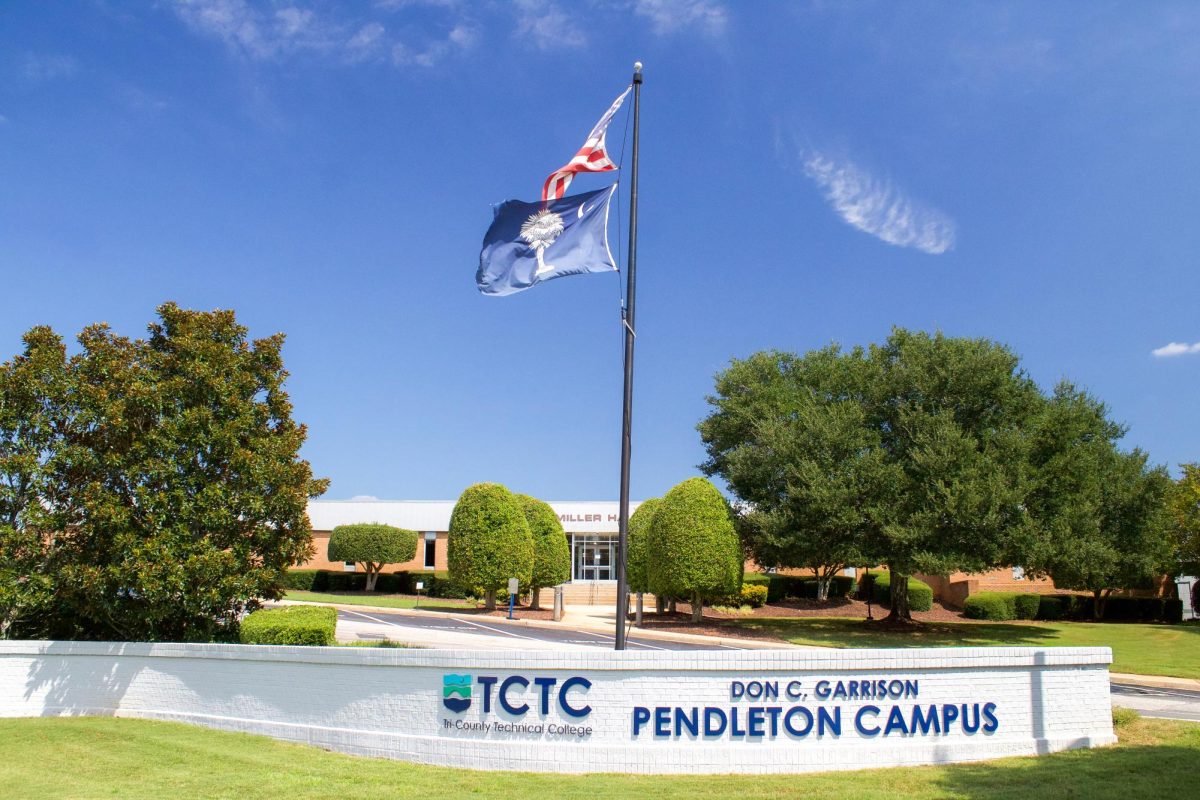Parking at Clemson University is an ongoing issue for students and faculty who commute to campus, and as construction began on the new Tiger Walk project on Nov. 28, resulting in a loss of over 500 parking spots, options for commuter students are becoming increasingly more scarce.
Dan Hofmann, director of Parking and Transportation Services, addressed student concerns at the Student Senate meeting on Monday.
“Word is out there is that we sell more permits than spaces. Yes we do, and we can do it,” said Hofmann. “Students are not all here at the same time.”
The ratio of permits to spaces is over 2 sold per parking space, according to Hofmann.
Hofmann predicts that from the fall to spring semester, the demand for commuter parking will decrease by approximately 6%. He attributes the smaller demand to fall graduation and the deficit of students who opt not to return to campus.
Hofmann admitted that Clemson’s commuter parking has taken a hit with the recent construction.
“We took a hit on commuter parking temporarily until that gets cleared up,” said Hofmann. “We’re going to more than makeup for what we’re losing, it’s just not going to be where you want it to be.”
To account for the confusion and inconvenience, Clemson has implemented a parking violation forgiveness program. Under the plan, which is active for the remainder of the fall 2022 semester, if a student receives an on-campus parking ticket, they can instead opt to make a donation to the Paw Pantry.
With all the purchase receipts present, the Paw Pantry will confirm a student’s donation and the parking office will forgive their citation, according to Minhyun Shin, chair of the Student Senate’s infrastructure and operations committee.
University Parking and Transportation Services plans to offer alternatives to driving to campus.
A recently implemented resource for students to utilize for on-campus transportation is Clemson’s bike-share system. As recorded this semester, the bike-share program has over 740 active memberships and more than 57,000 miles have been ridden on the bikes, according to Hofmann.
Hofmann is also hoping to see the bike lane infrastructure outside of campus improve to make the city more biker friendly.
Clemson is also incentivizing carpooling and public transit options. Due to the shortage of parking, the University is now offering free parking permits to those who can show they carpooled with one other person.
Clemson is also pushing students to utilize public transit options to get to, from and around campus.
“We are trying to get everyone to go to the park-and-ride lots around campus such as P5, P7 and P8 lots on highway 76 with an eight-minute transit service that gets you to the center of campus,” said Hofmann. “We are trying to reward people for using transit options.”
Students can build credit when they scan in and utilize any of the five different transit routes. This credit can be cashed in for tiger tokens which can become paw points or bento box-style lunch boxes and at the end of the semester, some students could be awarded AirPods or meal plans.
Parking and Transportation Services is heading five ongoing projects with hopes of adding more commuter parking options. The biggest undertaking are located on Williamson Road, the Lightsey Bridge lot and Kite Hill.
Regarding Williamson Road, Clemson is going to lose commuter parking this spring because the intersection of Perimeter Road and Cherry Road is being “realigned,” according to Hofmann. However, it is projected that the project will be completed by fall 2023 and will add 73 extra parking sports because the gap between C2 and C12 will be allocated to commuter parking, according to Student Senator Shin.
At the Lightsey Bridge housing area, Clemson plans to connect the R4 lot to the C1 lot and build a transit route and bike lane through the new, extended lot.
The Kite Hill project plans to expand the lot and house all the east residents who currently park in R1, R4 and R2, according to Hofmann. The lot will eventually “combine into C1 and R4 and turn into a transit hub running from Kite Hill to the Academic Success Center,” Hofmann continued. Following completion, “293 spaces will be added to the existing space, totaling 1,355 spaces” in that location.
In the future, Clemson Parking Services hopes to enact more permanent parking solutions and alternatives for students and faculty.
The department plans to bring Dash EV cars to Clemson’s campus. These vehicles are two-seater cars with a trunk, and parking services are currently working with the parent company to set up the necessary infrastructure on campus and hope to have four operating cars on campus by Jan. 2023, according to Hofmann.
The Dash EV system will be similar to the bike share program on campus in that students will be required to bring the car back to a designated charging station after use. The system will work via a mobile app, will cost an estimated $0.27 to $0.29 per minute and will provide students with the ability to get around on campus, according to Hofmann. The vehicles will be geofenced, restricting their driving abilities to campus and will have a speed cap of 25 mph.
Clemson also plans to offer additional services through the Ride Shark app. With the new resource, students will be able to view bus routes, bike share hubs, walking routes and parking locations; the app will be “one-stop shopping,” as Hofmann put it. Additionally, Ride Shark will allow students to apply for carpool matching.
The carpool matching functions similarly to a platform such as Uber or Lyft; students can register as either a driver or a rider, and the app will match them with a counterpart depending on the time and place of the desired destination. The carpool matching will be exclusive to Clemson personnel as members will need to provide a Clemson email address to sign up. The price “driver” students can charge “rider” students for a ride is limited based on the IRS limit per mile which is about $0.65 per mile, according to Hofmann.
Parking services also plans to install parking sensors in every parking lot on and around campus. The plan is to “basically sensor the entire campus so that in real-time, students can see where parking is available to relieve stress and save students’ time,” according to Hofmann. If successful, Clemson will be “the first university in the entire country to sensor parking on such a large scale.”
Eventually, Clemson foresees building a six- to seven-foot parking deck for students and faculty to utilize, according to Hofmann.
Clemson intends to continue pushing commuter, employee and resident parking to the outskirts of campus as the University plans to create an ultimately vehicle-free campus. Parking services will present their planned solutions to the Board of Trustees next semester, according to Hofmann.



